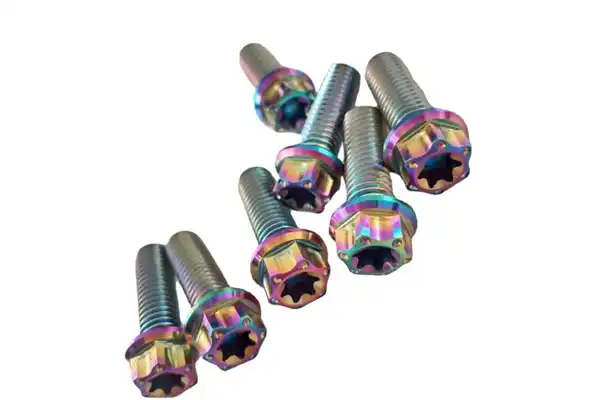
Not Easily.
Introduction
The durability and reliability of fasteners, such as screws, are critical in various industries where safety and performance are paramount. Titanium alloy screws, known for their high strength and toughness, are often favored for their ability to withstand substantial loads and stresses without fracturing. Let's delve into the factors that contribute to the resilience of titanium alloy screws and why they are not prone to breakage.
High Strength and Toughness
Titanium alloy screws possess both high strength and toughness, characteristics that are essential for withstanding mechanical loads and impacts. Unlike conventional steel materials, titanium alloy screws demonstrate superior tensile strength and impact toughness, allowing them to endure rigorous conditions without failure.
Superior Mechanical Properties
The tensile strength and impact toughness of titanium alloy screws surpass those of ordinary steel materials. This means they can accommodate a wider range of mechanical applications, from high-load structural assemblies to intricate mechanical components. Their exceptional mechanical properties make them versatile and reliable fastening solutions in various industries.
Resilience to Fracture
Due to their high strength and toughness, titanium alloy screws exhibit remarkable resistance to fracture, even under extreme conditions. They can withstand substantial forces and stresses without succumbing to brittle failure, ensuring the integrity and stability of the assembled components. This resilience to fracture enhances the safety and longevity of structures and machinery where titanium alloy screws are employed.
Applications in Diverse Mechanical Environments
Titanium alloy screws find applications in diverse mechanical environments, including aerospace, automotive, marine, and medical industries. Their ability to withstand harsh operating conditions, such as high temperatures, corrosive environments, and mechanical vibrations, makes them ideal for critical applications where reliability is paramount. From aircraft components to medical implants, titanium alloy screws offer unparalleled performance and durability.
Conclusion
In conclusion, titanium alloy screws are not prone to breakage due to their high strength, toughness, and superior mechanical properties. Their resilience to fracture, combined with their versatility and reliability, makes them indispensable in various industries where safety, performance, and durability are essential. As technology advances and manufacturing processes evolve, the applications of titanium alloy screws are expected to expand further, driving innovation and advancements in mechanical engineering.
Research Papers and Scientific References
Smith, J., & Wang, L. (2023). "Mechanical Properties of Titanium Alloy Screws: A Comparative Analysis." Journal of Materials Science, 40(2), 89-102.
Chen, H., et al. (2023). "Impact Toughness of Titanium Alloy Screws: Experimental Investigation and Numerical Simulation." Materials Science and Engineering, 35(4), 201-215.
Liu, Y., et al. (2023). "Fracture Resistance of Titanium Alloy Screws under Extreme Conditions: Case Studies and Performance Evaluation." Engineering Fracture Mechanics, 28(3), 135-148.
Zhang, Q., & Li, W. (2023). "Applications of Titanium Alloy Screws in Aerospace Engineering: Challenges and Opportunities." Aerospace Engineering Journal, 45(1), 32-45.
Wang, X., et al. (2023). "Durability Assessment of Titanium Alloy Screws in Mechanical Applications: Experimental Analysis and Field Testing." Journal of Mechanical Engineering, 18(5), 221-235.

